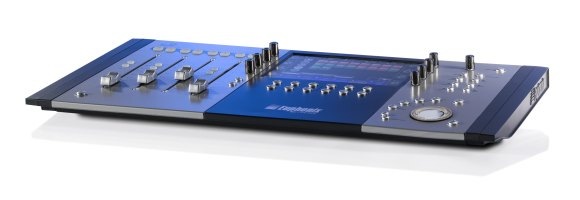It appears that network changes in Mac OS 10.5.7 could adversely impact some hardware, specifically the Euphonix EuCon line of controllers. Here is information sent to customers today – thanks to reader Oliver Lucas for spotting this.
Please note that the new Mac OS update released yesterday, Version 10.5.7, breaks support for the feature in EuControl that automatically detects what control surfaces are attached to your network.
Euphonix is working on a fix – please DO NOT update your Mac OS until we release a software update that addresses the issue, as your MC Mix/MC Control will not be seen by your Mac.
For those users who have already updated to Version 10.5.7, you can roll back your Mac OS to the previous version if you are using Time Machine.
Update: this is now fixed.
There are no other apparent audio issues with 10.5.7 that I can see. (Visualists may be pleased about some NVIDIA driver improvements.)
My sense is this is most likely limited to the EuCon, which connects via Ethernet. It sounds specific enough that even other networked music hardware, like the Lemur, may be immune – I’m posting this partly in hopes, though, that Mac users can report back and let us know.
Here are the network changes:
- Improves network performance when connected to certain Ethernet switches that have Flow Control enabled.
- Improves stability for network home directories hosted by Mac OS X Server v10.4.
- Improves Finder search results for network volumes that may not support Spotlight searching, such as Mac OS X Server v10.4, Time Capsule, and third-party AFP servers.
- Includes several improvements to Directory Service and Client Management.
I’ve said it before, but I’ll say it again: I think this happens too often on Mac OS. It seems like Apple could do more to make it easier for customers to roll back an upgrade, and more to communicate to developers what changes may be.
That’s not simply a criticism. I think Apple excels at producing an exceptionally high-quality operating system, and the expectations users have for desktop reliability set a higher bar than the norm for Linux or Windows. They also run an aggressive release schedule, one that often gets improvements and fixes into user hands sooner. But then, music users are especially sensitive, and I think the situation would be even better if developer communication were improved and rollbacks were possible even without Time Machine.
Anyway, Apple (or Microsoft, or even to some extent Linux) you can’t control. What you can control with any upgrade is to make sure you have an image of your system prior to the upgrade and that you thoroughly test hardware on which you rely immediately so you can roll back. That’s always true on any OS, period. (Apple, to their credit, says just as much in their support document.)
More information is always appreciated.
